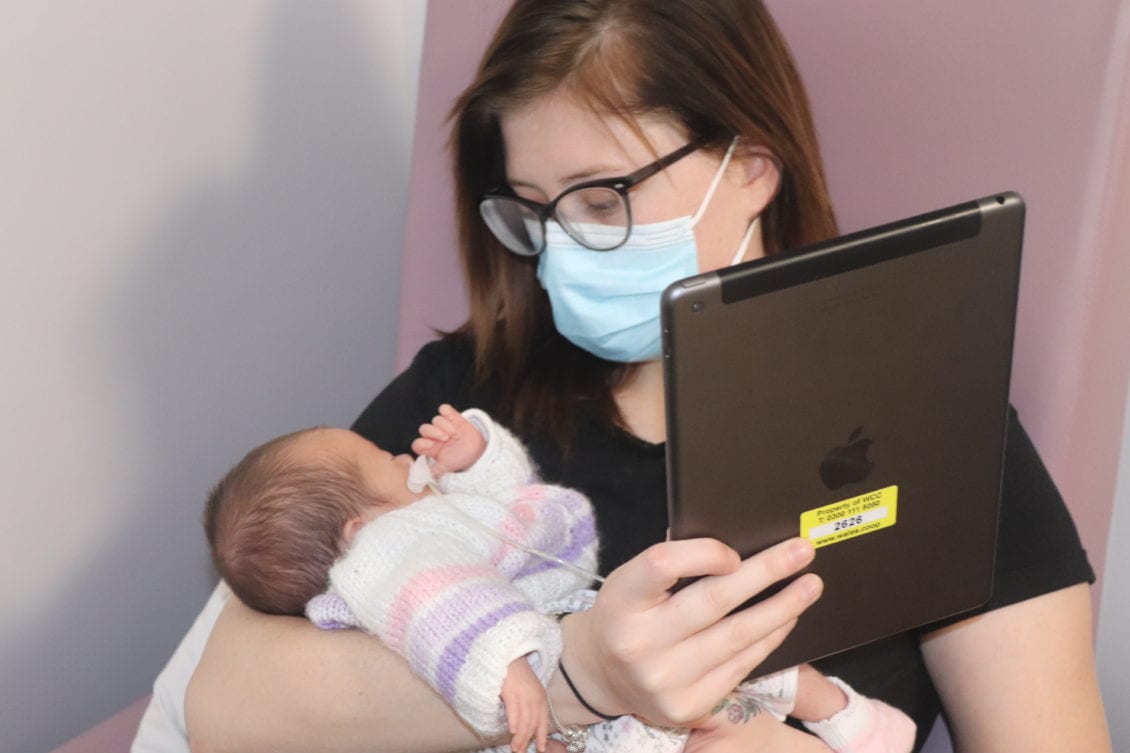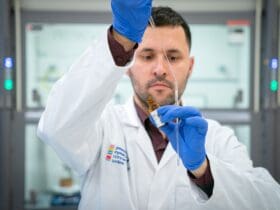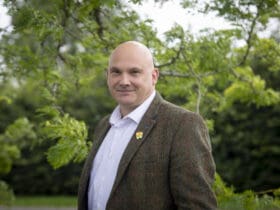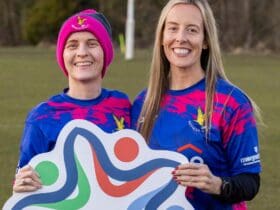A digital project funded solely through charitable donations is providing a lifeline to hospital patients during the Covid-19 pandemic.
Virtual contact has been a saviour for many of us throughout the pandemic, and nowhere has this been felt more than in healthcare settings across Wales where visiting has been restricted.
Funded through the Awyr Las Covid-19 Response Fund and Macmillan, over 250 devices have been deployed by Betsi Cadwaladr University Health Board (BCUHB) since last March. These are now enabling older and vulnerable people to keep in touch with their loved ones whilst in hospital.
Brian Laing, who’s leading the project at BCUHB explained: “When we became aware that decisions would have to be made to restrict and prevent visiting at our hospital sites, we very quickly realised that we’d need to find innovative ways to make sure that people receiving care could stay connected.
“Whilst many patients have their own smartphones or other devices, this is obviously not the case for everyone – especially in the case of many older and vulnerable people. So it’s been absolutely brilliant to have the technology available for them to use so that they too can benefit from virtual visits.”
Brian added: “We’ve recruited and trained a network of volunteer Digital Champions who can help with using the devices. In the future we are also hoping to be able to provide connectivity at home for relatives who may not have adequate broadband access.
“We are extremely grateful to everyone that’s donated to Awyr Las to help support this project. It’s making a huge difference to our patients and their families, and it means that we can continue to provide the best possible care for them despite the challenges of the pandemic.”
‘Overwhelming’ feedback…
Matthew Joyes, Assistant Director of Patient Safety & Experience at BCUHB said: “The feedback from patients and loved ones has been overwhelming. There are so many examples where a simple video call has meant so much.
“One lady was in hospital on her 100th birthday, and she was able to see her children and her grandchildren. They were just so happy to be able to celebrate such a milestone birthday together even though they couldn’t physically be together.
“There was also a gentleman who was able to speak to his brother in Canada. He hadn’t seen him face to face for 18 years, so that was really powerful.”
Betsi Cadwaladr was contacted by the daughter of a patient that was on Bersham Ward at Wrexham Maelor Hospital where Matron Rebecca Jones facilitated video calls with her mother. She said: “I just have to tell you how much we appreciate being able to see our precious mum, and to see how gentle and caring you were with her has made such a difference to my state of mind, I could see how hard it is on your emotions too, and I’m sorry you all have to go through this, you are all angels – every one of you.”
‘An eye on the future…’
With hundreds of older and vulnerable people connected already, BCUHB hopes that the project will continue to have wider impact and kick-start other digital inclusion projects too.
“It’s important that any investment of charitable support provides benefit to our patients long after the pandemic,” says Brian.
“We have an eye on the future and digital health, telehealth and those types of online services, will continue to become the norm in many situations post-Covid and beyond.
“For example, it’s likely that remote consultations with GPs or virtual visits to hospital outpatients clinics, will increasingly be offered as an available option.”
As part of its commitment to the digital inclusion agenda, BCUHB is now working towards assigning the digital devices to specific patients, so they can be used to aid visiting in hospital, virtual clinics and remote consultations.
BCUHB are also hoping projects like this will help tackle digital exclusion across North Wales, particularly in the areas of Mental Health and Learning Disabilities.
“As we emerge from this global pandemic, we need to ensure we can continue the momentum and progress made in terms of digital transformation so that everyone has access to remote services in the longer term.
“Rather than this being a pandemic response project, it should be viewed as the start of a meaningful long term programme to further digital inclusion in North Wales,” concludes Brian.
You can donate to the Awyr Las Covid-19 Response Fund by going to www.awyrlas.org.uk/donate








Leave a Reply
View Comments